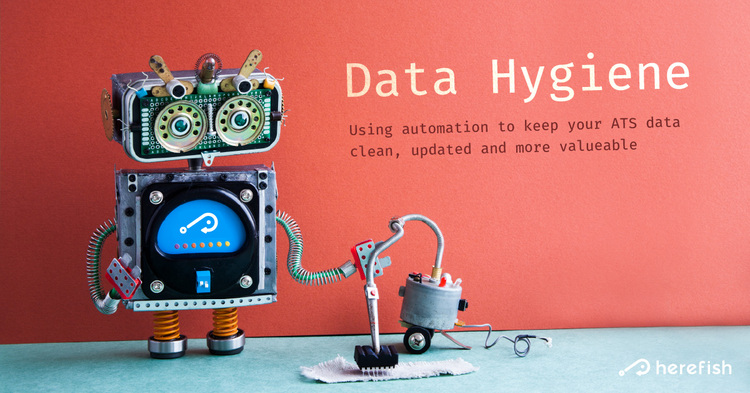Everything You Need to Know About Data Hygiene
Data tend to become messy and old. Customers of businesses can get in trouble for misusing their data. Incorrect data can land you in serious legal trouble. You must go for your data hygienic solutions for both legal and operational efficiency.
Record hygiene is not something that every company pays as much attention to as it deserves. You should focus on it properly because it is highly beneficial.
We’ll discuss why it is important to maintain a clean database, the potential problems that a messy database could lead to, as well as how your company can benefit from having consistent, clean data. We’ll also discuss the best data hygiene practices.
What is data hygiene?
Data hygiene refers to a process of reviewing and updating data to ensure that it is current and relevant. It also allows companies to remove irrelevant data. Clean data refers to information that is accurate, complete, consistent, unique, and consistent.
Regular record cleansing is essential to maintain data accuracy. People change jobs, their addresses, telephone numbers, and email addresses all the time. Data can quickly become outdated, which can lead to wasted time. Imagine your sales team making a lot of calls and sending out emails.
Data hygiene is vital for businesses
Businesses have the responsibility to ensure that customer data are secure and well-organized, but they are not individuals. Record chaos can lead to many problems that can have negative consequences. You might send private information to the wrong people or not be able to target the right people.
It is now even more risky to delete your data without proper cleansing, due to the recent global laws on data privacy. The record leakage can lead to legal problems.
Data Cleansing Will be Beneficial for Many Business Areas:
-
Targeting precisely:
Your data’s accuracy directly affects your ability to reach the audience you choose. Companies make it a priority to maintain their databases to achieve this goal. Targeting effectively leads to increased sales and a higher ROI.
-
Reduce time and money waste:
Incorrect data can result in very ineffective sales or marketing efforts. Campaigns that fail to reach their full potential not only result in wasted time and money but also chaos. Data management routines can help you avoid all of this loss and give your sales and marketing team the most helpful tool to succeed.
-
Reduce compliance risks:
These risks can be greatly reduced by routine audits and compliance-related modifications to your database.
-
Enhance your decision-making:
The more precise your analytics are, the more effective you’re at decision-making. Without checking their analytics, many people put it off. This can lead to inaccurate data and incorrect predictions. It’s likely you already know it. Data hygiene is also significant.
Data Hygiene Best Practices

-
One database for everyone:
Some companies have completely different databases. This is a huge mistake and can lead to inconsistency that is difficult to fix. To prevent data from getting mixed up, it is important to keep all information in one place with unified rules. To ensure that your team can take into consideration their experiences, gather them together.
-
Establish ground rules:
It is essential to set rules that will ensure consistency and accuracy. These rules should be respected and followed by everyone on your team. You should start by deciding which fields must be mandatory and which ones can be left out. Be modest about the number of fields that you make mandatory. Do not make data entry too difficult.
-
Decide on an organizational structure
It is needed to have a solid categorization system, but it shouldn’t be too complicated. It doesn’t matter if it’s funnel-based, or not. Make sure you consider the feedback and considerations of your team. You might not be able to please everyone if your team is too big. However, it’s possible to come up with something that will please all or at least most of them.
-
Limit editing privileges
You don’t need everyone to be able to modify your records. This helps to prevent accidental human errors that could cause data loss.
-
Do it every ten years:
It will be easier and more effective if you do it regularly. You can set up a routine to go through your database once a week. This will allow you to review the data and archive any unnecessary information.
Business enterprises will need to have large numbers of resources in order to maintain accurate databases as they grow. Additionally, updated information can become a valuable business asset. Record hygienic is a great way for businesses to reach their business goals. For a better return on investment, business enterprises can hire the expertise of data hygienic solutions providers to help them with their marketing activities. It is a great way to save time and money, as well as ensure that your business has the best possible result
Summary
Data hygiene refers to the group of processes that are used to maintain data cleanliness. If data are clean, it’s not likely to be contaminated by errors. Duplicate records, outdated or incomplete data, improper parsing of disparate record fields, and other factors can all lead to dirty data. Data entry, storage, and management can all be prone to errors.
Information quality is critical to both the operation and transactional processes in an enterprise as well as the reliability of business analytics. When it comes to enhancing the performance and functionality of your business, data hygienic needs to be maintained properly.

















